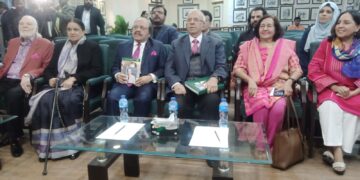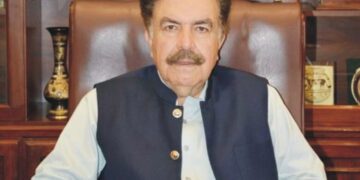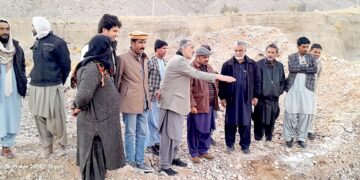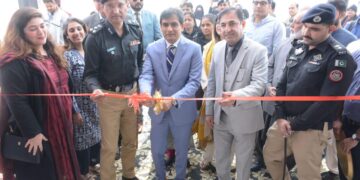Bhai Kahan Singh Nabha was born on August 30, 1861, in the village of Banera Khurd in the princely state of Patiala. Such living and true forms of scholarship are rarely fortunate for a nation. Due to his unique contribution in the field of literature and religion, his name is counted at number one in the list of Shiromani scholars in the Punjabi world. His background is related to Dhillon Jatt, Baba Nodh Singh Ji, a resident of village Pitho in Bathinda district, who was once the musahib of Maharaja Ranjit Singh. Kahan Singh Nabha’s father Baba Narayan was a prominent scholar and saint man of his time, who spent a long time at the historic Gurudwara ‘Dera Baba Ajpal Singh’ of Nabha and did great service to the promotion of Sikhism. It was here that with the blessings of his father, Bhai Kahan Singh Nabha received multi-faceted education in various subjects from the famous scholars of that time like Bhai Bhoop Singh, Bhai Ram Singh, Bhai Bhagwan Singh Dugg, Jawahar Singh, Pandit Shridhar, Bansidhar, Bhai Veer Singh Jalalke, Bawa Kalyan Das and Mahant Gaja Singh. He learned Persian from scholars in Delhi and Lucknow. Apart from walking, gardening and hunting, he was also very fond of music. While living in the well-to-do company of Professor Gurmukh Singh of oriental college in Lahore, his interest in social reform and religious studies became more mature.
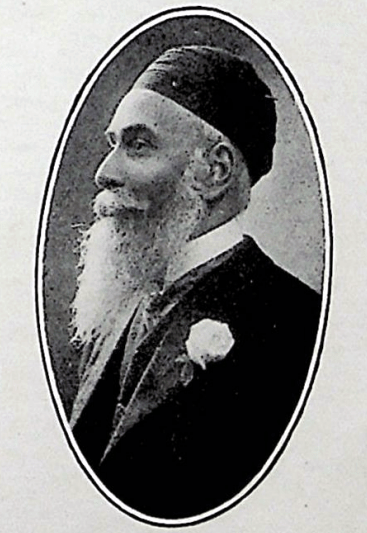

At a young age, when Bhai Sahib came from Lahor, and met to Maharaja Hira Singh, he was so impressed with his intelligence and education that he immediately made Bhai Sahib his Musahib and later he also appointed as the supervisor and teacher of Prince Ripudaman Singh. With the magic of his scholarship, Bhai Kahan Singh made a great contribution to the service of mother tongue Punjabi by creating literature rather than holding many high positions in the princely states of Nabha and Patiala. Bhai Kahan Singh’s only son Bhagwant Singh Hari and Bhai Sahib’s granddaughter-in-law Dr. Rachpal Kaur also contributed to the Punjabi literary service.
His literary journey began with the book ‘Raj Dharma’ (1884 AD) written in the last decade of the nineteenth century. Tika Jaimani Aswamedh, Natak Bhavarath Deepika and Tika Vishnu Purana are some of the other important works of this period. The second phase of his literary work begins under the influence of the awakened Sikh consciousness of that time. There was a desire in his heart to highlight the innocence of Sikhism or its independent personality. In order to solve the theoretical and literary problems such as the uniformity of all the customs of Sikhism, the separation of Sikhism and history from the illusions, the books of Sikhism to meet the standards of the time, etc., he wrote invaluable books like ‘Hum Hindu Nahi’, Gurmat Prabhakar, Gurmat Sudhakar, Sadk Ka Parmarth, and Guru Gira Kasauti. As a result, the scholars of the reformist Sikh movements of that time had become very appreciative of him.
Kahan Singh Nabha worked throughout his life to resolve the disputes between Nabha and Patiala state. Maharaja Hira Singh had named himself Neeti Ji. Colonel Dunlop Smith, the political agent of the Phulkian princely states of that time, was a great admirer of his wisdom and loyalty and his best friend. It was his ability to introduce an English gentleman like Mr. Max Arthur McAuliffe to Sikh religion and history and write an anupam granth in English language like ‘Sikh Religion’.
He authored dozens of books throughout his life. While the kosh ‘Anekarth Kosh’ and ‘Nammala Kosh’, edited by Bhai Sahib, made it easier for Punjabi literature lovers to understand the meaning of the poetic texts of Hindi and Braj language, the creation of books like ‘Gurchand Diwakar’ and ‘Gurushabdalankar’ established himself as the great Chhand Shastri and Alankar Shastri. By composing the ‘Gurushabd Ratnakar Mahan Kosh’, the fruit of his life’s penance, he proved that any great work can be done in mother tongue Punjabi. Bhai Kahan Singh Nabha, who rendered immense service to mother tongue Punjabi throughout his life, is remembered in the Sikh community with the titles of ‘Panth Ratna’, ‘Bhai Sahib’ and ‘Sardar Bahadur’ due to his all-round scholarship and all-round personality. On November 23, 1938, he said goodbye to this world forever at Nabha.
Dr. Ravinder Kaur Ravi
Former Assistant Professor
Department of Music,
Punjabi University, Patiala.



